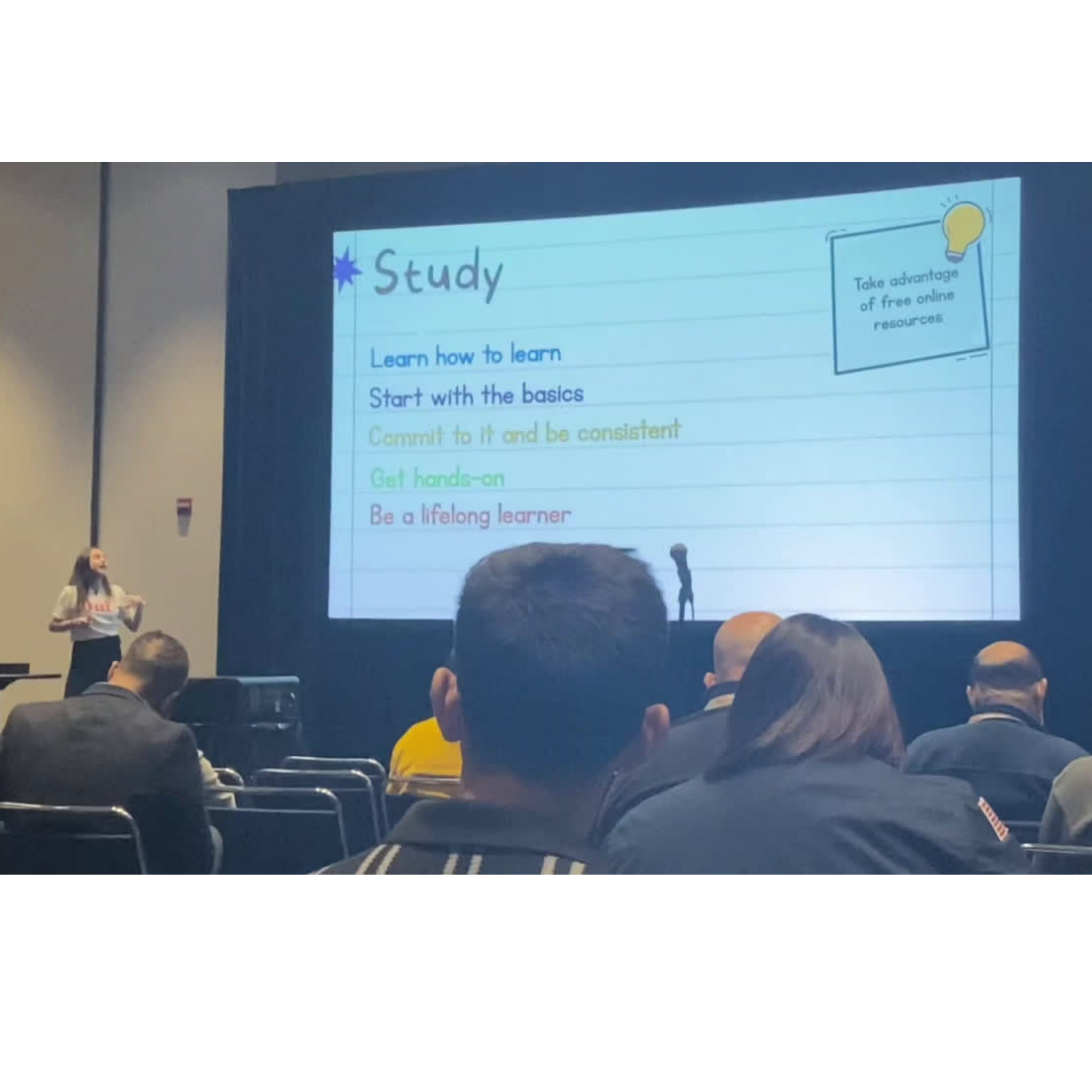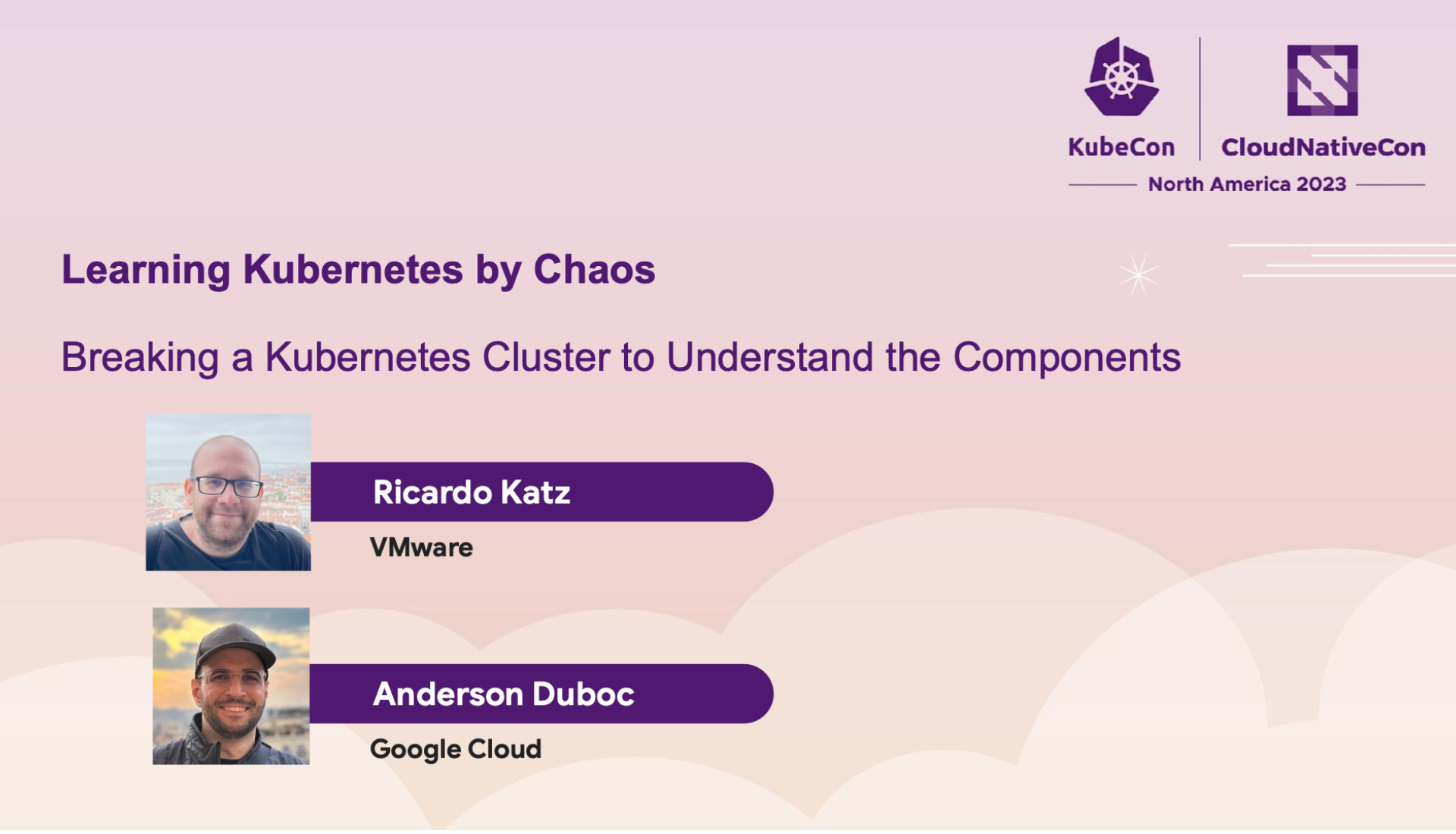By Dani Shirer, Director of Project Management, River Point Technology
KubeCon is a major tech conference hosted by Cloud Native Computing Foundation (CNCF), a project by the Linux Foundation to help advance container technology. This year, it was held in Chicago with three and half days of sessions, demos, workshops, and networking events packed into the schedule. Although I was excited to attend with other members of the RPT Team, I was unsure of what to expect for my experience as a less technically-savvy attendee.
As a project manager in the tech industry, I have the distinct honor of working with my talented colleagues who are subject matter experts in this
As a result, the first question that popped into my head upon learning I would be attending Kubeon was: Will there be value for me in these sessions or is everything going to be over my head? A fairly standard rumination from the imposter syndrome many of us in this field grapple with on a daily basis.
However this isn’t the CNCF’s first rodeo, and they had prepared a full offering for me and the other newbies attending. While planning my schedule on the website, I found a category of sessions labeled “Cloud Native Novice” and suddenly birds were singing and there was a light at the end of the tunnel. With my Sched app filled, I was ready to take on KubeCon. Here are a list of the Cloud Native Novice talks I attended with my major take-aways:
It’s Never Too Late for PKI Fundamentals: Building a Mental Model – Jackie Elliott, Microsoft
This was an excellent session to kick off with. Jackie did an amazing job breaking down the concepts of Public Key Infrastructure and its purposes; facilitating the secure transfer of information, increasing a network’s security, and providing a common framework of practices, policies and technologies. PKI is a term I’ve heard come up during numerous project discussions, and while I had a general understanding, it was really valuable to take a deep dive to help cement that comprehension.
From Non-Tech to CNCF Ambassador: You Can Do It Too! – Julia Furst, Veeam
By far my favorite KubeCon session! Julia walked us through her journey from a non-technical Marketing Manager to a CNCF Ambassador in a
span of two years. She touched on pushing past that imposter syndrome and self-doubt that inevitably comes when faced with difficulties, and also advocated for public learning, which essentially means to put yourself out there into various support networks (LinkedIn, GitHub Community Discussions, YouTube, Twitter) and to not be afraid to ask questions publicly to gain insight from your peers in this industry. I left Julia’s session feeling inspired and have already watched some of the introductory videos on her YoutTube Channel.
Demystifying Service Mesh: Separating Hype from Practicality – Brian Redmond & Ally Ford, Microsoft
Another great deep dive into a tool I regularly work with. RPT often provides consulting services for HashiCorp Consul and all of our customers use some form of a service mesh. Brian and Ally truly did demystify service meshes by breaking down the major pillars of security, observability and traffic management and providing thorough context that will help me speak more confidently during project planning around the subject.
With RPT leading consulting projects for HashiCorp Vault and AWS Services, Keycloak tends to find its way into project planning and discovery sessions, so I was very much looking forward to this presentation. Soojin and Hoon did not disappoint. They delved into the authentication and authorization cycle in a way that was easy to understand and provided detailed mappings of IAM within the multi-cloud world.

colleague or customer quickly spin up a cluster in a no-nonsense manner with little discussion around its components. Ricardo and Anderson instead, pulled up the code to an existing Kubernetes cluster and systematically broke then repaired the individual parts of it in order to showcase each purpose and function of said parts.
Beyond the Novice track, KubeCon offered incredible opportunities for networking with industry leaders, collaboration with new and existing partners, exposure to emerging tools within the cloud native landscape, and enough free knick-knacks on the showroom floor that I had to take a second carry-on with me for the plane ride home.
I’m eager to utilize my new arsenal of knowledge and continue to expand upon it, and hopefully by next year’s KubeCon, I’ll be writing a breakdown of the Cloud Native Expert Track.
